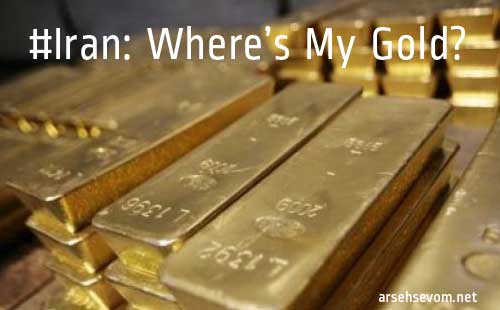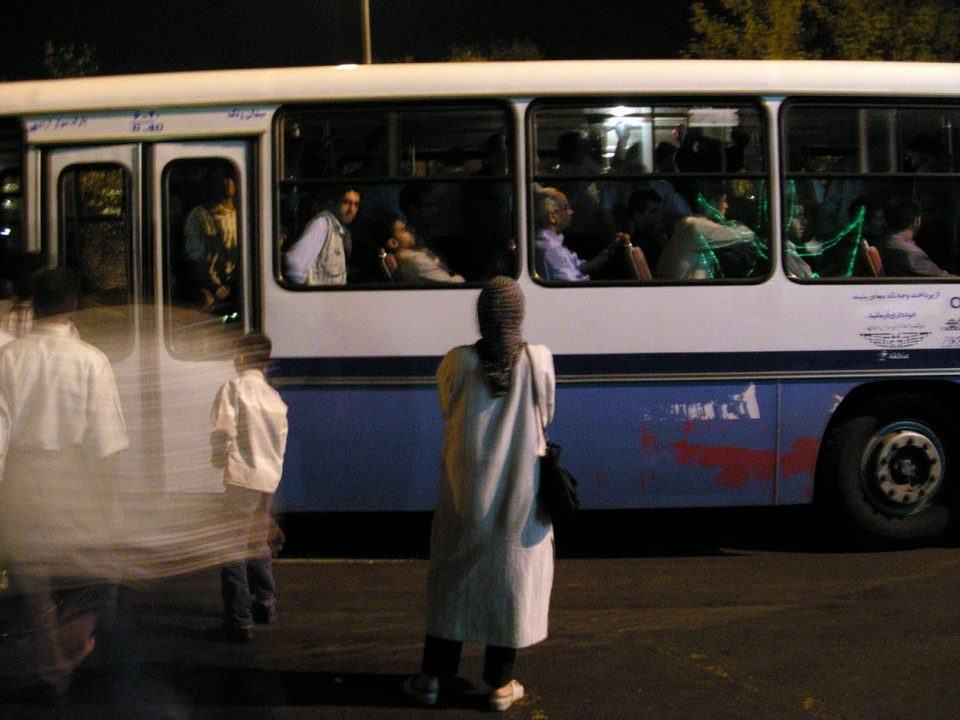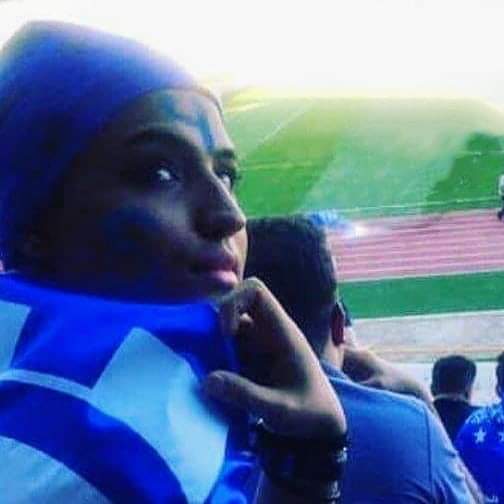
2013 Year in Review — #Iran and Its Civil Society
January 2, 2014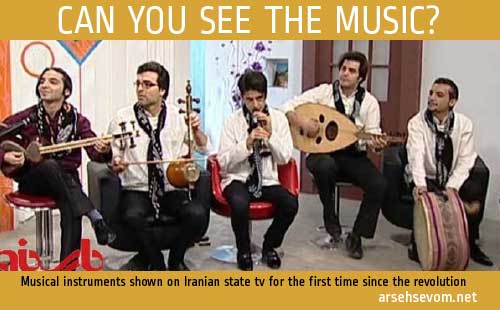
#Iran — Can you See the Music?
January 28, 2014Arseh Sevom – Anyone who has every read Joseph Heller’s classic novel depicting the insanity of war and military life, Catch 22, won’t be surprised by speculations of unscrupulous profiteering in the name of country and honor. Iran’s Babak Zanjani — deal-maker extraordinaire – seems to have walked right off the pages of Heller’s book. He’s a billionaire many times over thanks to international sanctions against Iran and his clever manipulation of his position as the Islamic Republic’s bagman. Recently he began a new stint as a prisoner in Iran’s Evin Prison.
By Peyman Majidzadeh
Man of Mystery Babak Zanjani: Finally Arrested
Babak Zanjani [en] was less well-known before late 2012, when his name came to the surface in connection with international sanctions imposed on Iran over its controversial nuclear program. After that, the European Union and United States put his name in their black list saying he has helped Iranian government to circumvent sanctions and acquire sanctions-related money. In December 2012 European Union named Zanjani “a key facilitator for Iranian oil deals and transferring oil-related money.”
Who is Babak Zanjani?
Zanjani was born on 12 March 1974. He owns and operates UAE-based Sorinet Group, a huge holding which includes a number of companies. He also owns Qeshm Airlines and a soccer club named Rah Ahan Sorinet. He is involved in a wide range of business interests from cosmetics, hospitality, movies and transport to construction and banking. The mysterious “Mr. Z,” as Iran’s former president Mahmoud Ahmadinejad referred to him in parliament, is active in Iran, Turkey, UAE, Malaysia, and Tajikistan. He claims he is worth $13.5bn and refers to himself as an “economic basiji,” after the Iranian hardline militia group.
What has Babak Zanjani actually done?
Babak Zanjani was arrested and taken to Evin prison [en] on 30 December 2013. Investigations on his case were started by the parliament in September 2013. Zanjani was accused of withholding $1.9bn of oil revenue that was supposed to be delivered to the Iranian government through his companies. Denying all allegations of wrong doing, Zanjani says “I just do business”.
Zanjani has always said that he is only a businessman. However, some analysts have questioned his way of doing business. According to a report published by Iran Emrooz (Today) [fa], Zanjani not only has not helped the country circumvent sanctions, but has also played a key role in imposition of more sanctions on Iran. The report argues that he has benefited from international sanctions. According to the report, Zanjani intentionally made his transactions, in the form of gold or cash, discoverable to US intelligence in hopes of new sanctions on Iran. For example, he made sure a huge cargo of gold was blocked at the Ataturk airport in Turkey, publicized the “discovery” in the media, and then ensures its release using his complicated network of connections. Consequently, the gold price increased dramatically and the tycoon made a profit. The report also argues that Zanjani received major loans from a number of European banks owing to significant credit he had gained by holding Iran’s blocked money in his own accounts.
No one knows for sure whether this speculation is precisely the case. The only clear matter is that the mysterious “Mr. Z” knows his job very well and has some pretty well connected friends; otherwise he could not make nearly $14bn in just a decade.
Iran Sanctions Watch
Iran’s supreme leader Ali Khamenei said that nuclear talks between the country and the world’s six major powers revealed US enmity toward Iran [en]. Giving a speech to thousands of people in the city of Qom, he said:
“One of the blessings of the negotiations was that the animosity of American officials toward Iran, Iranians, Islam and Muslims was revealed to everyone”
At the same time, over 200 members of parliament signed a draft to require the government to enrich uranium to 60% [en].
Looking at the issue from a holistic point of view, I found it interesting to list some items regarding Iran’s nuclear case to highlight the bizarre nature of the issue:
- Rouhani’s government is trying to come to an agreement with the West
- Supreme leader says US is an enemy right before the interim sanction lift can kick off
- US Congress demands more strict sanctions
- Obama says he will veto more sanctions
Such a situation only makes sense in the world of politics!
A Lightweight Lift on Heavy Sanctions
Some sanctions relief on Iran will kick off a week from now. Starting on 20 January 2014, Iran will begin a six-month process of eliminating its stockpile of highly enriched uranium in exchange for the relaxing of a limited number of international sanctions. EU Council Joint Proposal of 7 January 2014 lays out [en] the new provisions. Additionally, $4.2bn of frozen Iranian assets will supposedly be repatriated to Iran at regular intervals. For more details, read this blog entry [en] by partner and Head of the Business Crime team at a leading UK law firm Michael O’Kane.
Hardline Publication Suspended, Culture Ministry Questioned
Iran’s Press Supervisory Board finally showed its tough face to hardline publications as well. The board shut down many many reformist newspapers over the past few years, while hardline publications seemed immune to the law. However, magic happened this time and Yalasarat al-Hussein weekly, published by hardline Ansar-e Hezbollah, was suspended [en]. The board referred to sections 8 and 11 of Article 6 of Iran’s media laws and an amendment to Article 12 as the reasons for suspension. The Press Supervisory Board also sent warnings to two other hardline publications.
At the same time, hardline lawmaker Hamid Rasayi questioned Culture Minister Ali Jannati [en] in the parliament. He accused Jannati of defending solo singing of women and expressing regret over the closure of the Bahar daily. The situation well shows Iranian hardliners’ threshold for tolerance.
Tehran Urban Art
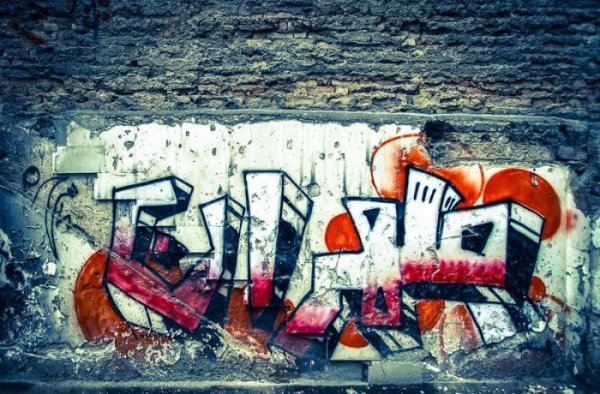
See more images on Radio Zamaneh
Graffiti is a common phenomenon in large and small cities around the world. Artists have mastered their drawing skills to display their internal thoughts and ideas.. Tehran’s streets are no exception to this, where Iranian youths found another way to express themselves. See some graffiti on Tehran walls at Radio Zamaneh.


